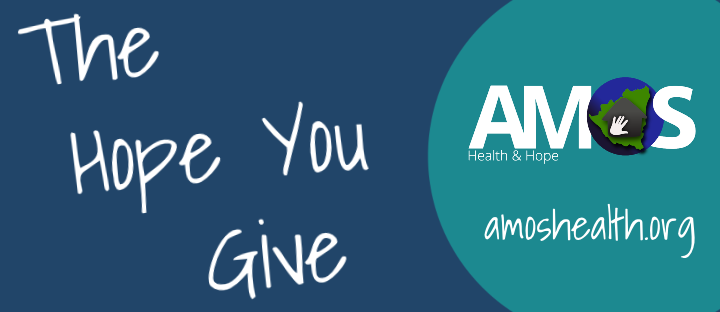
February 2, 2019
Dear AMOS friends,
Your generous support has made it possible for AMOS to continue providing essential health care to nearly 70,000 adults and children. Thank you so much!
We want to affirm that AMOS has chosen to remain actively neutral in the midst of the ongoing crisis here in Nicaragua. In living out our Christian values, we condemn all violence and are committed to working towards peace and reconciliation. In the midst of any crisis, the poorest and most vulnerable people are the most affected. We are here to stay. We are here to serve. For this reason, we ask that you please be sensitive if posting about the conflict on social media.
International Interventions
In December 2018, the United States Congress passed the Nicaragua Human Rights and Anticorruption Act (“Nica Act”), and President Trump signed it into law. The “Nica Act” imposes targeted sanctions on Nicaraguan government officials found to be tied to human rights abuses. It also aims to block any loan issued by international financial institutions that could benefit the current government of Nicaragua, except for the purposes of humanitarian aid or the promotion of democracy.
Last week, a delegation from the European Parliament visited Nicaragua and urged the government to release those who have been detained, allow human rights organizations to continue working within the country, and restart dialogues for peace. The Nicaraguan government had previously expelled U.N.-backed experts investigating human rights violations in Nicaragua, citing bias.
Impact on the Nicaraguan People
The polarization in Nicaragua is still evident throughout society, with large groups of people passionately against the government, and other large groups passionately in favor of the government. Over 500 people who have protested against the government or organized roadblocks are reportedly in jail, many charged with terrorism. At the end of 2018, nine non-governmental organizations were accused of participating in terrorist activities and stripped of their legal status. Offices of news channels or programs that have been critical of the government were also raided in December, and several journalists were arrested. The journalists have been accused and charged with “fomenting hatred and violence”, an action that “falls within the criminal category of: provocation, proposition and conspiracy to commit terrorist acts.” No protests have occurred since September, and people not involved in protests have been able to go about their daily lives.
Last month, the Government of Nicaragua approved the Culture of Dialogue, Reconciliation, Security, Labor and Peace law, in response to the deep divisions that have arisen in the country. The government is taking steps to organize “dialogue circles” at the neighborhood and community level to try to create spaces to understand the different perspectives of the people who have have been affected during the crisis and to try to find joint solutions that help restore social cohesion.
However, in economic terms, the last nine months have been devastating to the Nicaraguan economy. An estimated 453,000 people have lost their jobs, and approximately 143,000 more families have fallen into poverty. About $1.5 billion US dollars have been withdrawn from Nicaraguan banks since last April, causing banks to stop approving loans for the population. For farmers in the country that depend on loans to plant their crops, this could potentially mean a reduction in the amount of food produced in the country in 2019. And as of Feb. 1st, new changes to the Nicaraguan Social Security system took effect, which increase taxes for employers on the salaries of their employees (from 19% to 22.5%) and for employees on their paychecks (from 6.25% to 7%). Within the context of an economy which continues to face increasing difficulties, these measures will be felt the most by families who are already struggling to make ends meet. It could also lead to further layoffs as businesses must face increasing costs of operation.
The “Nica Act” and other international pressures may also have a significant effect on the Nicaraguan people. Potential consequences include: a loss of loans for public infrastructure projects (i.e. roads, hospitals, schools), decreased revenue for the government budget, a decrease in public services available to the poor (i.e. health and education), continued job losses, and an increase in poverty.
The Hope You Share
From the bottom of our hearts, we want to thank you for your ongoing support during this difficult time. The hope you share is more important than ever before. With our vision of health for all people at the forefront, we are working together to continue to provide essential medications and health care to our communities in Nicaragua.
In January, we had the immense pleasure of hosting our first two mission teams of 2019. The First Baptist Church of Petersburg, West Virginia, and the First Baptist Church of Kansas City, Missouri each separately sent amazing teams to work with us on needed projects. They shared messages of hope and inspired our staff and the people we serve. Their example and their accompaniment during these hard times was uplifting to all of us and a reminder that we are all one body in Christ. They would be more than happy to talk to any other church considering sending a mission team about their positive experiences here.
Please keep praying for hope for the people of Nicaragua. Pray for families who have lost loved ones or lost their jobs and are struggling to provide food and medicines. Pray that AMOS and all our community health workers can continue improving health. And pray for a peaceful solution to the crisis.
With love and gratitude,
Dr. David Parajón, Executive Director and Dr. Laura Parajón, Medical Director
On behalf of the AMOS Team

